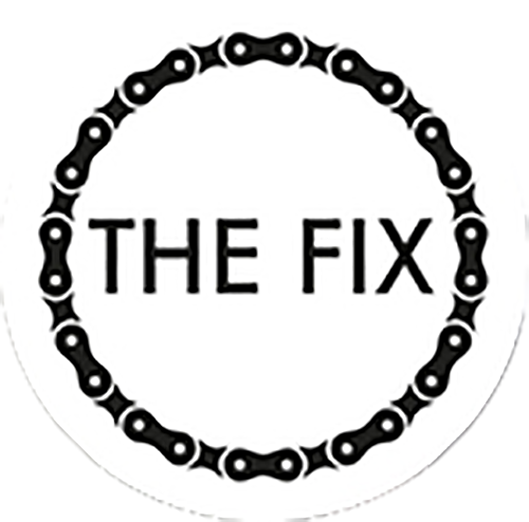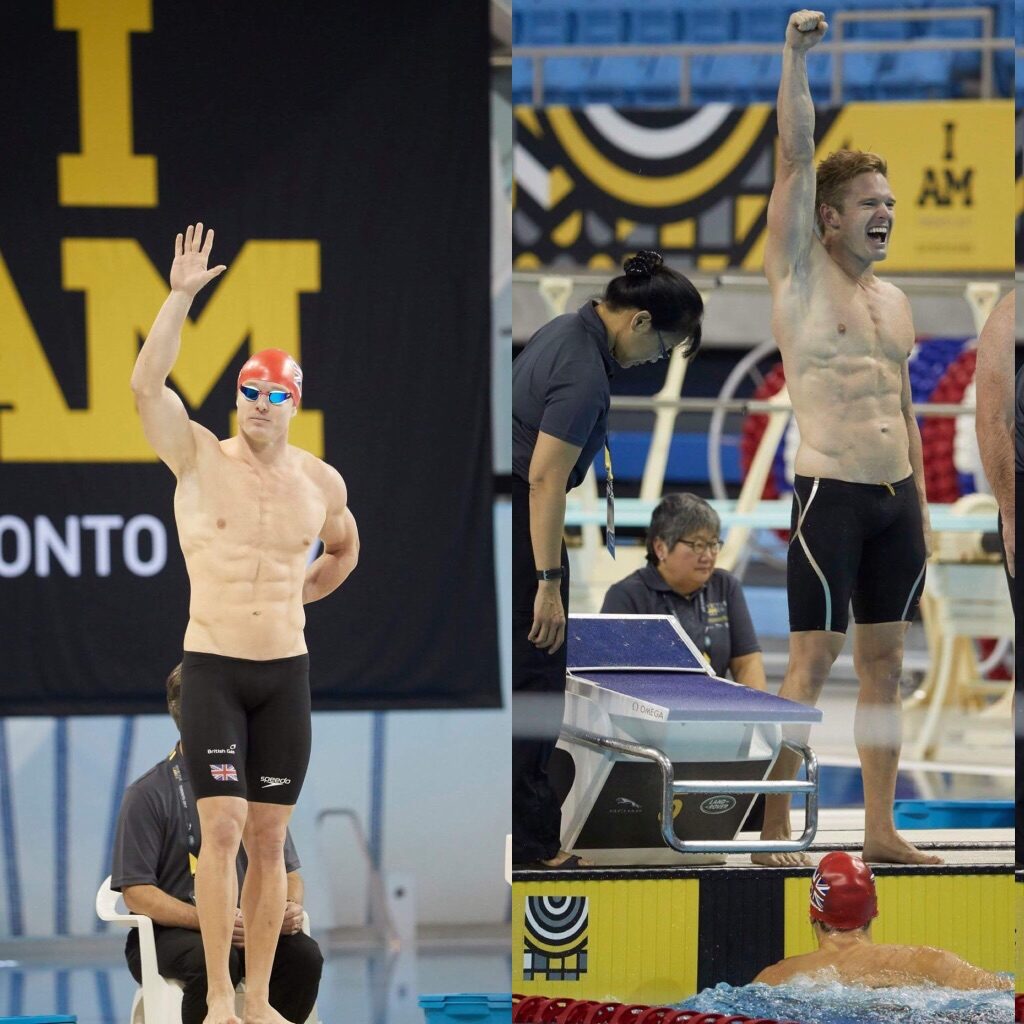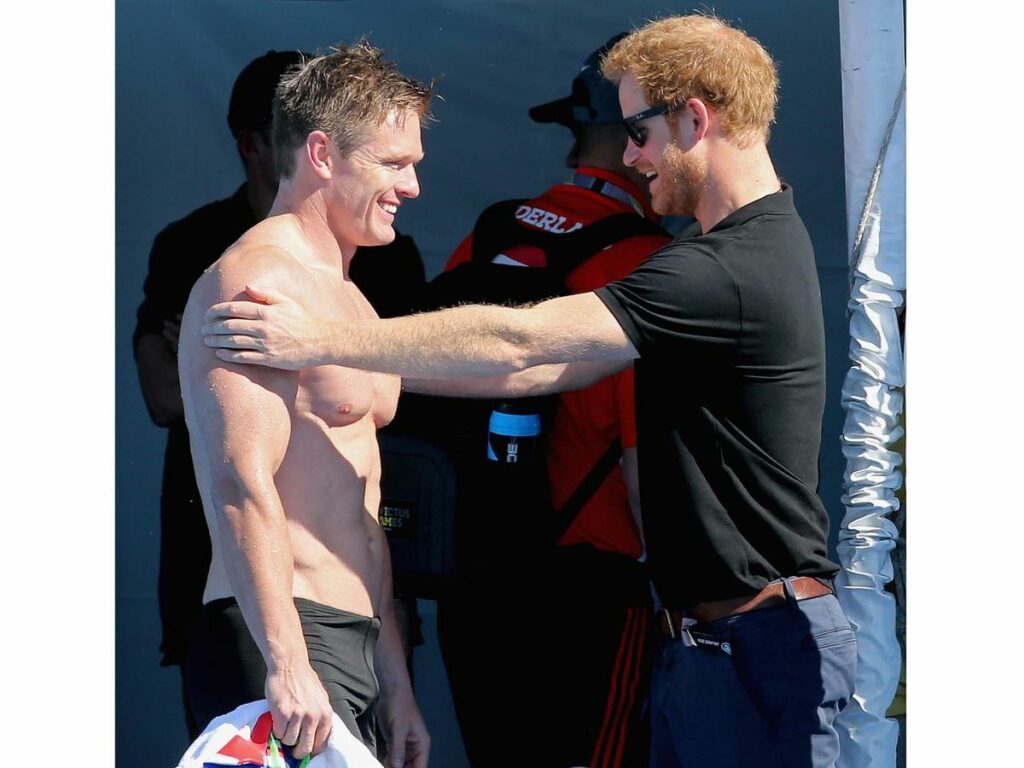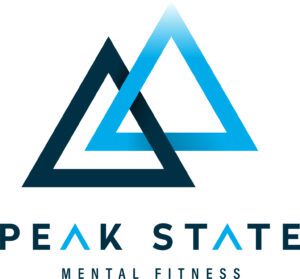
NATHAN JONES | OVERCOMING THE ODDS
The Fix talks to an old mate of the business and occasional Team Quella rider, RAF pilot Nathan Jones about trauma, resilience and life after professional sport. We talk about his post-traumatic growth, Invictus games success, and his latest project promoting mental fitness on a global scale.
MM: Hi Nathan, great to catch up with you as always. At the risk of going over old ground, could you share with the The Fix readers ‘the big story’ of how you ended up with the injuries that turned your life upside down?
NJ: Hi Mike, no problem at all. So, to keep a long story short, I was flying an RAF Voyager aircraft from RAF Brize Norton to Camp Bastion in Helmand Province, Afghanistan when we encountered control difficulties whilst over the Black Sea. I was in the cabin and hit the roof of the aircraft when it went into a dive. I then had to crawl along the roof to get back into the cockpit and sort the thing out. Unfortunately I broke my back in the process but that’s nothing compared to what could have happened, as there were 198 passengers on board, so it could have been a very bad day at the office.
MM: Wow so let me get this straight, you crawled along the ceiling with a broken back whilst hurtling into the sea?
NJ: I know it sounds dramatic but when you’re running high on adrenaline and strong coffee you can achieve amazing things.
MM: Well it must have helped that you had a sporting background to enable you to do such a thing?
NJ: It certainly helps in any situation to be both physically and mentally fit. I came from a Rugby and Skiing background so strength and agility played a big part in my training anyway. I’d just got back from ski racing in Meribel the day before so was at peak fitness which certainly helped with both the incident itself and my recovery.
MM: I imagine your recovery was a long journey! At what point in your recuperation did you start to see light at the end of the tunnel?
NJ: Yeah, there were some dark times and staying motivated over such a long period was tough. We had the best care and facilities imaginable when I was a patient at the Defence Medical Rehab Centre in Headley Court and later Stanford Hall, with access to such amazing physios and clinicians, but the real battle is in your head to get up every morning and go again. In 2016, one of my doctors asked me to try out for the Invictus Games to try and get me back into a competitive environment and set achievable goals, in not just my recovery but representative sport again. I threw myself into it and ended up competing in cycling and swimming in both Orlando and Toronto Invictus Games.
MM: And how did that go for you?
NJ: Well the build up to Orlando was crazy. It was held at the ESPN World of Sports near Disney and the whole of the worlds sporting media was there to watch. Training had gone really well and I felt fit for the race. The last thing my surgeon said to me before I left was “whatever you do, don’t fall”. I was in the road race which was done as a crit and on the last lap I still had something in the tank, so kicked on the outside of the pack on the back straight. I ended up in the lead by a couple of bike lengths, until the final corner about 15 metres from the finish where I took the final corner a bit hot and wide and clipped the barrier. So after cartwheeling down the final straight, smashing my bike to pieces and scaring the hell out of my wife, I was taken to hospital on a spinal board and ended up with a $96,000 bill for the insurance company.
MM: And the fact it was on prime time TV meant there was no escaping that!
NJ: No, it seemed everyone else knew before I did. I did end up getting No.7 in the ESPN top sporting moments that week though, beating Lebron James, so there was at least 1 positive. I managed to then come back and although the chlorine stung my road rash, managed to pick up a few medals in the pool. Toronto was a different story though. I got my revenge there.

MM: Why swimming and cycling? Were these sports that you had always done?
NJ: No not really. I’d done both at school and for general fitness training but nothing serious for years. Coming from professional rugby though, the coaches felt that I had the right attributes to give it a go if I applied myself properly. Thankfully it paid off and I’ve not looked back.
MM: Was your interest in overcoming mental health challenges sparked by your experiences or those of the people you encountered along the journey?
NJ: A bit of both really. I studied Sports Science at Loughborough Uni and the importance of Sports Psychology has been drummed into me from an early age, so I had a good basis of tools and techniques there, but I still have so much to learn. The people I’ve met along this journey though have been so inspiring with such amazing stories of resilience and post-traumatic growth, that I’m fascinated in using these learnings to shine a positive lens on mental health, rather than the usual (although very important) negative connotations.
MM: Tell us a bit about your new venture?
NJ: Over the last couple of years we worked on a mental fitness platform to promote positive tools and techniques in mental fitness in the MOD. We launched this as HeadFIT last year, and from the learnings of this we have set out on a global journey in promoting positive mental fitness and create a community of people trying to attain it. We’ve called it Peak State and its just launched in Australia but about to launch in a few other countries.
MM: It seems to be that the pre-emptive approach is the big difference here, explain how this works?
NJ: We deliver a series of easy to use tools to create healthy daily habits to improve your mental fitness. We feel everyone should look after their mental fitness just like they look after their physical fitness, so just like going out on your bike to keep fit, use these techniques everyday to stay on top of your mental game.
MM: Who is the target audience?
NJ: Everyone now. As I said, we developed this with the Military and launched a platform in Aus for the First Responders in the aftermath of the bushfires, but now it’s for the general public. We have taken learnings that professional athletes have used for years and just democratised it.
MM: I understand that you have the backing of Prince Harry, how did that come about?
NJ: Well my Co-Founder, David and I both worked for him at the Royal Foundation and also know him through the Invictus Games, so he is championing Peak State as he feels incredibly passionate about improving people’s mental fitness and giving them the tools to do so.

MM: It all sounds amazing, we wish you every success with it all. Can’t wait to catch up properly over a few beers and hopefully to get you racing again with a Team Quella shirt on in some post-Covid events at the end of the year – thanks so much for chatting.
For more info on Nathan and his new venture, Peak State, please check out:
Instagram: Nathanrainbowjones
Website: www.peakstate.org
e: nathan.jones@peakstate.org


